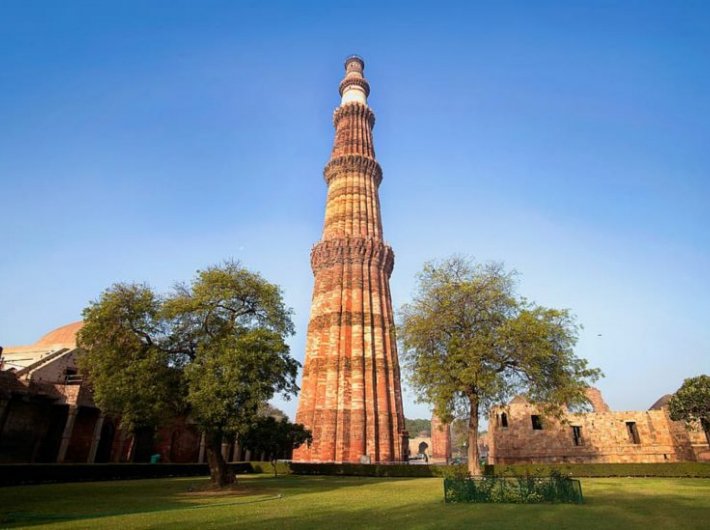Our religious traditions and the values nurtured during the freedom struggle can provide peaceful and innovative resolutions
Amid the campaign for building a temple in place of Babri Mosque, India in 1991 passed a law, the Places of Worship (Special Provisions) Act, to prohibit the conversion of places of worship – like temples, gurudwaras, mosques, and churches – into different places of worship for other religions. The Act clearly mentions that
“the religious character of a place of worship existing on August 15, 1947, shall continue to be the same as it existed on that date” and that “no suit, appeal or other proceeding with respect to … such matter shall lie on or after such commencement in any court, tribunal or other authority.”
The Act aims to deter any potential religiously motivated political controversy. And despite this, the courts have allowed the petitions on the issues barred by it. There has been a spate of 'archaeological' controversies in the past couple of months. We discuss a few of them before elucidating the need and direction for peaceful solutions.
The Kashi Vishwanath Temple in Varanasi shares its wall with the Gyanvapi Mosque. It was reported that a shivling was found in the mosque compound, and on May 16, 2022, the court ordered sealing, videography, and survey of this particular spot. Another petition was filed in the Allahabad High Court claiming that the Taj Mahal is a temple named “TejoMahalaya”, a Lord Shiva temple. The petition was dismissed. The controversy about Qutub Minar was reignited recently when a former director of the Archaeological Survey of India (ASI) claimed that the structure in south Delhi was built by the Hindu king to study the direction of the sun, and not by Qutub al-Din Aibak. Further, it was claimed that Quwwat-ul-Islam mosque, located to the northeast of Qutub Minar, was built using the demolished materials of 27 Hindu-Jain temples.
These controversies are not new, they keep reappearing in discussions, but they have gained renewed traction over the recent years and this article aims to provoke some thoughts on the way forward towards solving this issue. While the following is written with the Qutub Minar issue in mind, the points can be generalised for the other sites of controversy to.
Firstly, the ASI should demarcate areas and present facts about the site. This should be on display to all visitors to the site. Instead of fighting over what was there in the past, it is important to preserve the culture and history.
Second, there should be more emphasis on passing on the essence of all religions across generations of India than merely passing on the rituals. All religions preach that one's soul is different from the body. Once a person understands this, then the root cause of conflict, i.e., identification of oneself with religion and fight over such issues, will automatically and peacefully end. This phenomenal essence of all Indian philosophies should be showcased at all such sites too. Historically this idea has been depicted through artworks. A similar art exhibition could be organized there. Research has found that visual absorption has more impact on the subconscious mind than any other means.
Third, the prime religion of all religions is the practice of Ahimsa (non-violence) in one's thoughts, words, and actions. Ahimsa propagates the premise that all living creatures have the same divine souls in them, and hence to hurt others is to hurt oneself. It is also believed that Himsa (violence) attracts negative karmic consequences.
One of the most popular proponents of Ahimsa in modern history is Mahatma Gandhi. In one of the anecdotes, he explains the solutions to all of life's problems. This solution is aptly relevant even for these contentious issues. The story goes that numerous visitors were coming to see him every day with their problems. Somebody asked him how he solved each issue without getting troubled. He said that he asked every visitor the two options that he/she had. Once the visitor could identify the two options, he told the person to follow the solution which had the least himsa in terms of thoughts, words, and actions. The strategy has persistently given his followers a win-win situation. We strongly believe that there is a need to learn and imbibe the Gandhian way of proposing a solution to the controversy.
Finally, when thinking about any controversy, one should remember the principle of Anekāntavāda (or many-sidedness of Truth). It means that the truth is complex and has multiple aspects. Even with the ASI and other institutions using rigorous methods to find the truth behind Qutub Minar's controversy, one must remember that determining the absolute truth will be difficult, if not impossible. The principle of Anekāntavāda promotes open-mindedness, religious harmony, and pluralism. One of the key learnings and lessons for the future could just be recognizing that since the ultimate truth is indeterminate, the present goal is simply to respect the faith and sentiments of all religions.
A great Jain monk and philosopher, Acharya Vidyanand, once said, "Everyone has the right to practice their own religion. Nobody has the right to criticize any other religion." It is imperative to treat the other faiths as you want your faith to be treated.
The solution to these controversies lies in making the sites free of intolerance and demonstrating equality in the essence that underlies all religions. Let's be innovative in coming up with a peaceful solution to this issue than follow the violent way of disrespecting the other viewpoint.
Palakh Jain is an associate professor at Bennett University. Payal Seth is a PhD Scholar at Bennett University.
